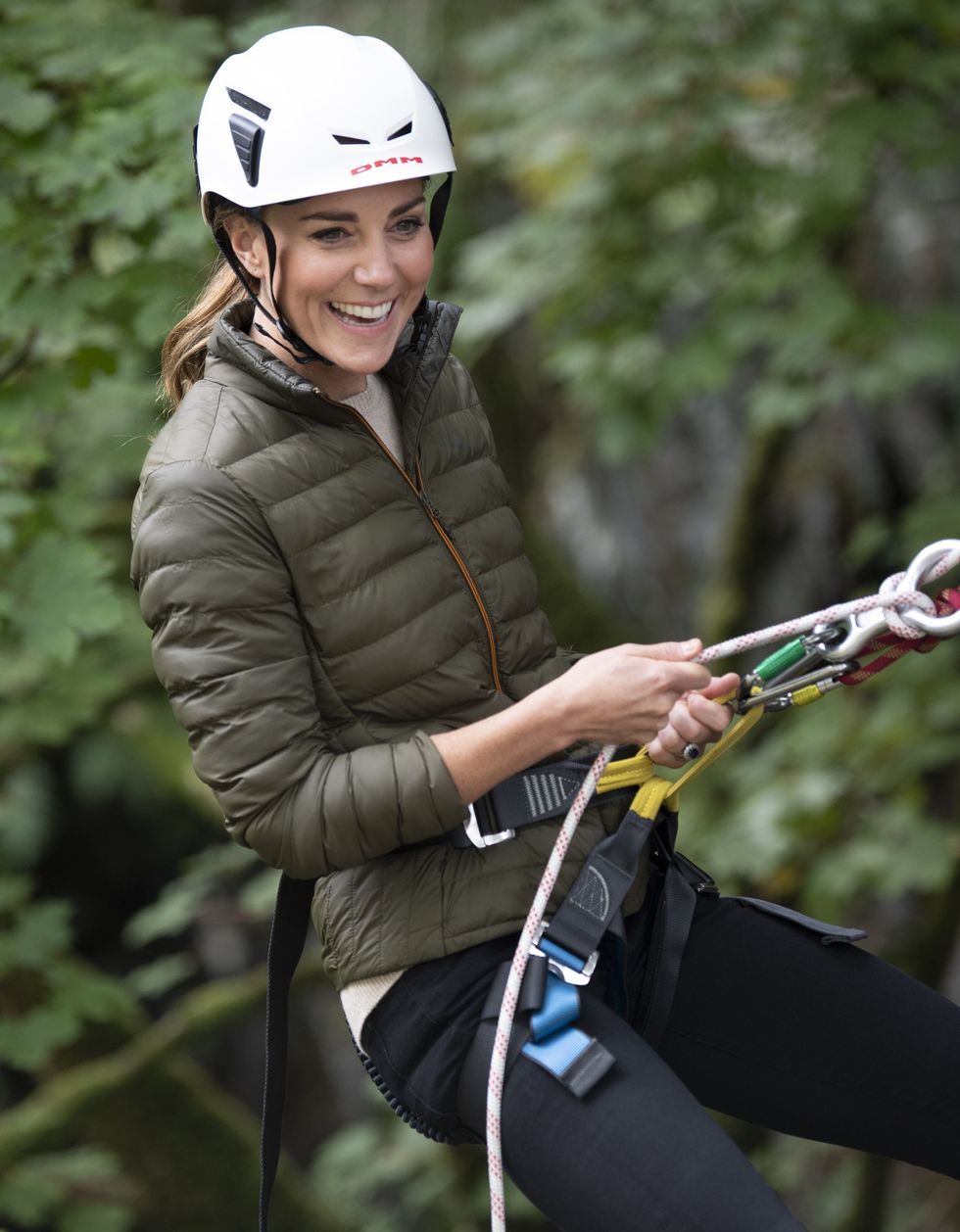
The Duchess of Cambridge heard the moving stories of Holocaust survivors sent to a British beauty spot to recuperate from the horrors of the Nazi regime.
Kate took a boat trip on Lake Windermere with two elderly men who more than 75 years ago were part of a 300-strong group known as the Windermere Children who went from “hell to paradise”.
While living close to the famous lake they underwent psychiatric sessions, art therapy and swam and climbed to aid their recovery, something the duchess described as “so forward thinking for the time”, adding: “It’s so relevant still today.”
TV celebrity and barrister Robert Rinder, star of ITV’s Judge Rinder, was among a group of Windermere Children family members.
In an episode of the BBC’s genealogy programme Who Do You Think You Are? he described how his grandfather, Morris Malinicky, came to Britain with the group and he paid tribute to the people of the Lake District for being so welcoming to the children.
In a tweet after her visit, the duchess said: “It was so powerful to hear how their time in the Lakes enjoying outdoor recreation, sport and art therapy, allowed them to be able to begin to rebuild their lives and eventually, their families here in the UK.”
The 300 Jewish children were flown to Britain in 1945 after many had been used as slave labour and witnesses to atrocities in camps like Auschwitz and Buchenwald.
Kate joined Arek Hersh and Ike Alterman, both aged 93, on Osprey, a 1902 steam launch, for a tour of the places they remembered, and they pointed out the bay where they used to go swimming and a wartime housing complex built for aircraft factory workers that became their home for their first six months in Britain.
She had asked to meet them after reading about the Windermere Children and wanting to know if their resilience in overcoming the horrors they had witnessed and the therapy they received offered lessons for her own work with disadvantaged children across Britain.
Mr Hersh who lives in Leeds, lost 81 members of his immediately family in the Holocaust with only one of his sisters surviving.
Like Mr Alterman, who lives in Manchester, he spent time in Auschwitz and other camps.
Mr Alterman, who went on to become a Manchester jeweller and enjoy a long and happy marriage that produced two children and two grandchildren, told Kate how they had been starved and mistreated for years and then found a new world of riches in the Lake District.
“Each chalet had a bed, clean sheets.
“There were showers.
“I went swimming every third day, I went walking and climbing in the mountains,” he said.
“We had come from hell to paradise.”
Mr Hersh, who eventually became a car mechanic and then went into property rental, said: “It was a new life for us, no home, no parents, nobody.”
Kate was interested in the role that the outdoor life, something she believes in passionately as a way of helping create health and happiness, had played in their recovery.
Mr Hersh agreed it had helped but he also admitted that he suffered nightmares for years after witnessing people being murdered in the camps.
The wartime Jewish refugees, aged between eight and 15, were mostly from Poland and spoke little or no English when they arrived.
Most were strangers but their six months together in Windermere was a bonding experience that made them friends for the rest of their lives.
Some of their children and grandchildren met Kate afterwards and chatted to her for an hour at Windermere Jetty about how the survivors met up once a year through the rest of their lives.
“We had no family so they became our family,” said Dr Trevor Friedman, a psychiatrist whose father was a survivor who became one of the Windermere Children.
“For us Windermere was this mythical place.”
Earlier Kate had braved new heights when she tried abseiling, taking the plunge at Cathedral Quarry in Little Langdale, Cumbria, after having a go at mountain biking with a group of Air Cadets.
















